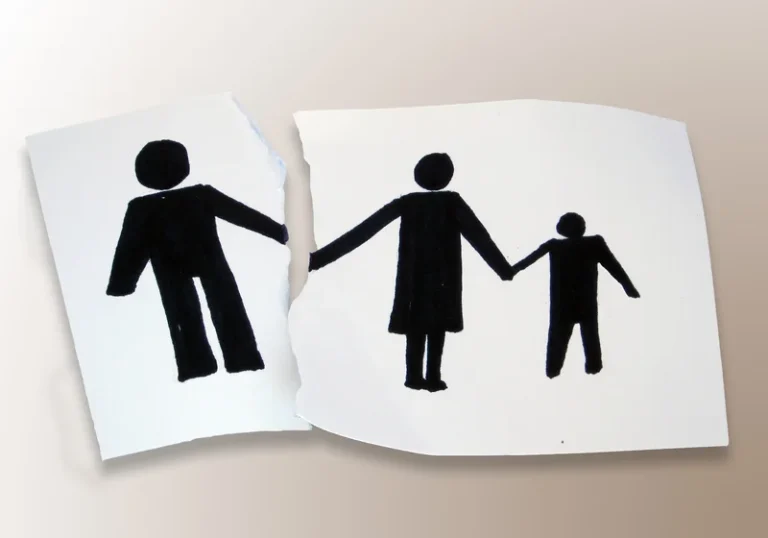
If you think a family member or loved one might be showing signs, signals or symptoms of alcoholism, know that it won’t «go away» on its own. Their brain is changing—and without help, there can be serious long-term consequences. There are factors that pop up again and again when determining who might have an issue with alcoholism. If you’re in the «at-risk» population, it doesn’t take much to become dependent on alcohol or other drugs. They can recommend treatment options that can help, including therapy and medications.

Precontemplation: The Starting Point
- Once it takes hold, it can be hard to shake loose—without the right help.
- A good relapse prevention plan specifies a person’s triggers for drug use, lists several coping skills to deploy, and lists people to call on for immediate support, along with their contact information.
- Other research pinpoints the values of cognitive behavioral therapy for relapse prevention, as it helps people change negative thinking patterns and develop good coping skills.
- The people this person meets in these meetings are much better positioned to encourage their sobriety than family members are.
- While it may be tempting to rush into recovery at this point, experts actually caution against this sort of sudden action.
People who drink daily or almost every day should not be left alone for the first few days after stopping alcohol. Withdrawal symptoms can quickly go from a bad hangover to a serious medical situation. However, medical complications can occur during the acute phase of withdrawal. Programs like those at Steps to Recovery are designed to help individuals struggling to overcome alcohol use disorder on their own. Meeting any of these criteria necessitates a closer look at how you interact with and rely on alcohol. Meeting multiple criteria could mean you have an alcohol use disorder.
What are The 6 Stages of Alcohol Recovery

Whether through individual or group therapy, medication-assisted treatment, or holistic interventions, tailoring the approach to the individual’s circumstances enhances the effectiveness of addiction recovery efforts. Addiction recovery is a complex and nuanced process, and recognizing the diversity of individual experiences is crucial in developing effective strategies for sobriety. The concept of harm reduction, along with various modalities, offers a flexible and personalized approach to cater to the unique needs and circumstances of each individual on their journey to recovery. You might think that this time, you can have the control over drinking that you lacked before, or even start to question whether you had a use disorder. These are signs that you’re denying your problem, and they’re often the first step toward a relapse.

More on Substance Abuse and Addiction
As individuals progress through the rehabilitation stage, they become better equipped to address underlying issues and develop healthier coping mechanisms. The next stage, maintenance and relapse prevention, focuses stages of alcoholic recovery on sustaining sobriety and establishing a support network for ongoing recovery. Detoxification is a complex and challenging process, which is why it is strongly recommended to undergo it under medical supervision.
Stages of Alcohol Recovery: The Ultimate Guide

So far, there’s no consensus on the medical definition of recovery in alcohol treatment literature. If you’re ready to make a positive change, here’s what you may want to know about the recovery process. According to the National Institute on Alcohol Abuse and Alcoholism (NIAAA), recovery is a process that involves remission from AUD and quitting heavy drinking for good. The cost of a 30-day inpatient rehab program ranges from $6,000 to $30,000, with luxury options exceeding $80,000. Factors like facility type, level of care, and amenities affect pricing, and financial assistance options like scholarships, sliding scale fees, and payment plans can help manage expenses.
You might feel fine for days or weeks, and then suddenly, they hit you like a tsunami. Recovering from alcohol addiction is a challenging and rewarding journey. By acknowledging your addiction, seeking help, and working through the various stages of recovery, you can achieve sobriety and a healthier, happier life. By actively engaging in aftercare programs and maintaining a strong support network, individuals can significantly reduce the risk of relapse and sustain their recovery journey. Building a strong support system is crucial for maintaining sobriety. Supportive networks can include friends, family members, support groups, or sponsors who provide encouragement, understanding, and accountability.
- One third experienced relapses when they were experiencing negative emotions and urges to drink/use.
- During this stage, people typically start researching treatment options, seeking support, or setting goals for themselves.
- It can take your liver one week or longer to completely detox from alcohol after your last drink.
- If you or someone you know is struggling with substance abuse, reach out to the resources listed above and take the first step toward a better life.
- Reaching out for help isn’t a sign of weakness; it can make you stronger.
- It’s an exciting time, filled with hope and anticipation, but it can also be daunting.
Stage 2: Early Abstinence

With excessive alcohol consumption, this important organ can’t metabolize Vitamin D, which could develop into a deficiency. Some common signs and symptoms of cirrhosis include fatigue, itchy skin, weight loss, nausea, yellow eyes and skin, abdominal pain and swelling or bruising. Many private health insurance plans cover all or some of the cost of inpatient treatment for addiction https://ecosoberhouse.com/ and rehab. The Affordable Care Act requires private and public insurance plans to cover 10 essential health benefits, one of which is substance use disorders. However, the exact coverage will depend on your specific insurance plan. You may be responsible for part of the costs of your alcohol addiction treatment, depending on your deductible, copay, and coinsurance.
- Some of the best-known 12-step programs include Alcoholics Anonymous (AA), Narcotics Anonymous (NA), and Cocaine Anonymous (CA).
- Researchers find that taking incremental steps to change behavior often motivates people to eventually choose abstinence.
- People with alcohol use disorder should be monitored by a medical professional when withdrawing from alcohol.
- The detoxification process can last from a few days to a couple of weeks, depending on the individual’s specific circumstances.
- To learn more about when you may need help for alcohol misuse, visit our informational page on helping someone with an alcohol use disorder or take our alcohol misuse self-assessment.
It’s also possible to feel post-acute withdrawal syndrome (PAWS), where psychological symptoms continue for weeks or months after you stop drinking alcohol. If you do experience post-acute withdrawal, it’s important to remember that what you’re going through is normal, and over time, the symptoms will subside. Both acute and post-acute withdrawal can be addressed safely with the right care. It’s important to connect with a physician to discuss the best path forward for you.
- There are many resources available to help, including peer support groups, counseling, therapy, and inpatient rehabilitation.
- You’ll find that what you’re experiencing is normal, and most likely, an indicator of progress towards treating alcohol dependency (even if it doesn’t feel that way yet).
- Research suggests that 12-step interventions and mutual support groups can be essential in recovery.
- It may include rediscovering a work or social role, finding new recreational interests, or developing a new sense of spiritual connection.
- People in the throes of addiction are not capable of the best form of friendship.
After Three Days
Some of the physical symptoms include shakiness, bloated appearance, sweating, changes in skin complexion, weight gain or loss, nausea, sleep issues and more. Employment is virtually essential for having a stable and meaningful life. A lack of positive references and having a criminal record typically pose challenges. Too, there may be long gaps in a resume that are hard to explain away. At every step of the way, support from friends, peers, and family is useful, but there are also many services and organizations that provide guidance., and many can be accessed through Recovery Community centers.
